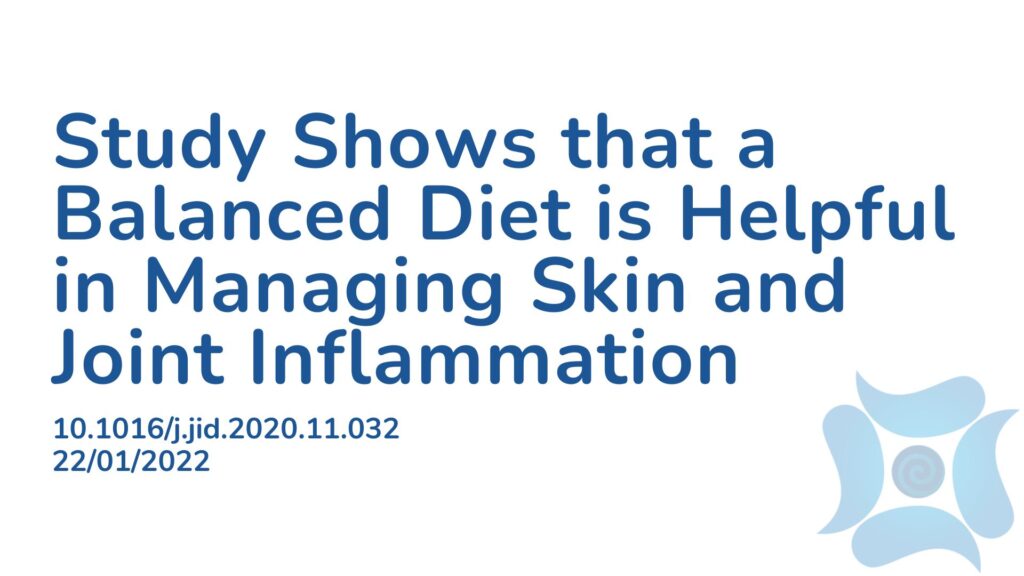Summary:
This study, published in the Journal of Investigative Dermatology, examined the role of western diets in joint inflammation and skin disorders such as psoriasis. Psoriasis is an auto-immune disease linked to the body’s immune system. Psoriasis is also associated with a number of comorbidities such as psoriatic arthritis. Psoriasis presents as skin inflammation and the formation of red scales and patches. This study showed that eating a high-sugar and high-fat diet for 10 weeks predisposed mice to joint and skin inflammation, however after switching their diet to a more balanced and nutrient dense dietary pattern, there was less inflammation and red, scaly itchy skin. This improvement indicates that diet has an impact on skin inflammation and that a more balanced diet could prevent the pro-inflammatory impacts of a western diet.
Abstract:
We previously showed that exposure to a high-sugar and moderate-fat diet (i.e., Western diet, WD) in mice induces appreciable skin inflammation and enhances the susceptibility to imiquimod-induced psoriasiform dermatitis (PsD), suggesting that dietary components may render the skin susceptible to psoriatic inflammation. Herein, utilizing an IL-23 minicircle (MC)-based model with features of both PsD and psoriatic arthritis (PsA), we showed that intake of WD for 10 weeks predisposed mice not only to skin but also joint inflammation. Both WD-induced skin and joint injuries were associated with an expansion of IL-17A-producing γδ T cells and increased expression of Th17 cytokines. After IL-23 MC delivery, WD-fed mice had reduced microbial diversity and pronounced dysbiosis. Treatment with broad-spectrum antibiotics suppressed IL-23-mediated skin and joint inflammation in WD-fed mice. Strikingly, reduced skin and joint inflammation with a partial reversion of the gut microbiota were noted when mice switched from a WD to a standard diet after IL-23 MC delivery. These findings reveal that short-term WD intake-induced dysbiosis is accompanied by enhanced psoriasis-like skin and joint inflammation. Modifications toward a healthier dietary pattern should be considered in patients with psoriatic skin and/or joint disease.
Article Publication Date: 22/01/2022
DOI: 10.1016/j.jid.2020.11.032



